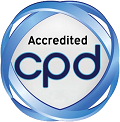Yung-Feng Liao
Academia Sinica, Taiwan
Title: The treatments with a neurogenesis-promoting nutraceutical elicit cognitive improvement in an mouse model of Alzheimer’s disease
Biography
Biography: Yung-Feng Liao
Abstract
Alzheimer's disease (AD) is a progressive neurodegenerative disease and is the most common form of dementia in the elderly. The lack of disease-modifying therapeutics for AD has imposed a huge social burden. Accumulated evidence has suggested that neurotoxicity elicited by of amyloid-β (Aβ) and Tau, the two pathological hallmarks of AD, significantly contribute to the pathogenesis and progression of AD. It has been proposed that neurogenic agents with neuroprotective efficacy could be potential therapeutics for AD by reviving the neurogenesis of endogenous neural stem cells to replace the lost neurons in the diseased brain. We thus seek to identify novel neurogenesis-promoting agents from herbal extracts and determine whether herbal extracts effective on inducing neurogenesis can reduce Aβ-elicited neurotoxicity. An in vivo neurogenesis assay is established to perform the primary screen of herbal extracts. Effective herbal extracts are validated by a secondary zebrafish model of tauopathy independently. The in vivo efficacy of herbal extract is subsequently determined by using an Aβ42-injection mouse model of AD. We have now identified an herbal extract (HE238) that exhibit biological efficacy in promoting in vivo neurogenesis and concomitantly suppressing the neurotoxicity elicited by amyloidopathy. Our data show that treatments with HE238 can effectively induce neurite outgrowth and promote the clearance of Aβ and Tau. Oral administration of HE238 for 2 month also significantly improves the cognitive function in an Aβ42-injection mouse model. Together, our data suggest that the active ingredients of HE238 could present an enormous resource for AD-alleviating agents.

